 W
WGloria Evangelina Anzaldúa was an American scholar of Chicana cultural theory, feminist theory, and queer theory. She loosely based her best-known book, Borderlands/La Frontera: The New Mestiza, on her life growing up on the Mexico–Texas border and incorporated her lifelong experiences of social and cultural marginalization into her work. She also developed theories about the marginal, in-between, and mixed cultures that develop along borders, including on the concepts of Nepantla, Coyoxaulqui imperative, new tribalism, and spiritual activism.
 W
WAlexander Bain was a Scottish philosopher and educationalist in the British school of empiricism and a prominent and innovative figure in the fields of psychology, linguistics, logic, moral philosophy and education reform. He founded Mind, the first ever journal of psychology and analytical philosophy, and was the leading figure in establishing and applying the scientific method to psychology. Bain was the inaugural Regius Chair in Logic and Professor of Logic at the University of Aberdeen, where he also held Professorships in Moral Philosophy and English Literature and was twice elected Lord Rector of the University of Aberdeen.
 W
WMikhail Mikhailovich Bakhtin was a Russian philosopher, literary critic and scholar who worked on literary theory, ethics, and the philosophy of language. His writings, on a variety of subjects, inspired scholars working in a number of different traditions and in disciplines as diverse as literary criticism, history, philosophy, sociology, anthropology and psychology. Although Bakhtin was active in the debates on aesthetics and literature that took place in the Soviet Union in the 1920s, his distinctive position did not become well known until he was rediscovered by Russian scholars in the 1960s.
 W
WMenachem Begin was an Israeli politician, founder of Likud and the sixth Prime Minister of Israel. Before the creation of the state of Israel, he was the leader of the Zionist militant group Irgun, the Revisionist breakaway from the larger Jewish paramilitary organization Haganah. He proclaimed a revolt, on 1 February 1944, against the British mandatory government, which was opposed by the Jewish Agency. As head of the Irgun, he targeted the British in Palestine. Later, the Irgun fought the Arabs during the 1947–48 Civil War in Mandatory Palestine and its chief Begin was also noted as "leader of the notorious terrorist organisation" by the British government and banned from entering the United Kingdom.
 W
WMargaret Lucas Cavendish, Duchess of Newcastle-upon-Tyne was an English philosopher, poet, scientist, fiction writer and playwright. She wrote in her own name in a period when most women writers remained anonymous.
 W
WChristine de Pizan or Pisan, born Cristina da Pizzano, was an Italian poet and author at the court of King Charles VI of France and several French dukes.
 W
WHélène Cixous is a professor, French feminist writer, poet, playwright, philosopher, literary critic and rhetorician. Cixous is best known for her article "The Laugh of the Medusa", which established her as one of the early thinkers in post-structural feminism. She founded the first centre of feminist studies at a European university at the Centre universitaire de Vincennes of the University of Paris.
 W
WElizabeth Marney Conner was a 19th-century American dramatic reader and educator, and the founder of the Buffalo School of Elocution. She published recitations in both prose and verse, and was also the author of an operetta.
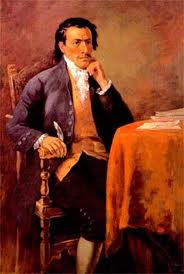 W
WFrancisco Javier Eugenio de Santa Cruz y Espejo was a medical pioneer, writer and lawyer of mestizo origin in colonial Ecuador. Although he was a notable scientist and writer, he stands out as a polemicist who inspired the separatist movement in Quito. He is regarded as one of the most important figures in colonial Ecuador. He was Quito's first journalist and hygienist.
 W
WMarsilio Ficino was an Italian scholar and Catholic priest who was one of the most influential humanist philosophers of the early Italian Renaissance. He was an astrologer, a reviver of Neoplatonism in touch with the major academics of his day, and the first translator of Plato's complete extant works into Latin. His Florentine Academy, an attempt to revive Plato's Academy, influenced the direction and tenor of the Italian Renaissance and the development of European philosophy.
 W
WMiguel Ángel Garrido Gallardo is a Spanish philologist and semiotician. Born September 7, 1945, in Lubrín, Almería, Spain. He is the adopted son of the town of Los Santos de Maimona. He is a professor of research at the Consejo Superior de Investigaciones Cientificas (CSIC) [National Council for Scientific Research] in Madrid and distinguished university professor.
 W
WJürgen Habermas is a German philosopher and sociologist in the tradition of critical theory and pragmatism. His work addresses communicative rationality and the public sphere.
 W
WDoña Inés de Asbaje y Ramírez de Santillana, better known as Sor Juana Inés de la Cruz was a Mexican writer, philosopher, composer and poet of the Baroque period, and Hieronymite nun. Her merit as a true master of the Spanish Golden Age gained her the nicknames of "The Tenth Muse" or "The Phoenix of America", for she was probably the most accomplished author of the entire history of the Spanish Americas, and a flame that rose from the ashes of "religious authoritarianism".
 W
WJosé Telésforo Paúl y Vargas, SJ was a Colombian Catholic bishop and Jesuit who worked in Panama and Colombia. Born in Bogotá, he served as bishop of Panamá from 1876 to 1884 and as archbishop of Santafé en Nueva Granada from 1884 until his death in 1889.
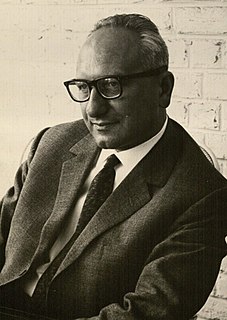 W
WChaïm Perelman was a Polish-born philosopher of law, who studied, taught, and lived most of his life in Brussels. He was among the most important argumentation theorists of the twentieth century. His chief work is the Traité de l'argumentation – la nouvelle rhétorique (1958), with Lucie Olbrechts-Tyteca, translated into English as The New Rhetoric: A Treatise on Argumentation, by John Wilkinson and Purcell Weaver (1969).
 W
WFrancesco Petrarca, commonly anglicized as Petrarch, was a scholar and poet of early Renaissance Italy, and one of the earliest humanists.
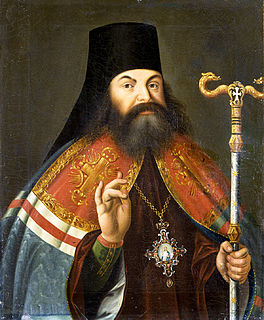 W
WFeofan/Theophan Prokopovich was a Russian Imperial Orthodox theologian, writer, poet, mathematician, and philosopher of Ukrainian origin. Rector of the Kyiv-Mohyla Academy, and Archbishop of Novgorod. He elaborated upon and implemented Peter the Great's reform of the Russian Orthodox Church. Prokopovich wrote many religious verses and some of the most enduring sermons in the Russian language.
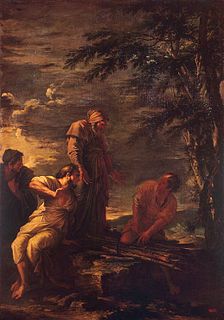 W
WProtagoras was a pre-Socratic Greek philosopher and rhetorical theorist. He is numbered as one of the sophists by Plato. In his dialogue Protagoras, Plato credits him with inventing the role of the professional sophist.
 W
WThomas Sheridan was an Irish stage actor, an educator, and a major proponent of the elocution movement. He received his M.A. in 1743 from Trinity College in Dublin, and was the godson of Jonathan Swift. He also published a "respelled" dictionary of the English language (1780). He was married (1747) to Frances Chamberlaine. His son was the better known Richard Brinsley Sheridan, while his daughters were also writers - Alicia, a playwright, and Betsy Sheridan a diarist. His work is very noticeable in the writings of Hugh Blair.
 W
WWłodzimierz Spasowicz or Vladimir Spasovich (1829-1906) was a Polish-Russian lawyer often acclaimed as the most brilliant defense attorney of Imperial Russia.
 W
WJohn Thelwall was a radical British orator, writer, political reformer, journalist, poet, elocutionist and speech therapist.
 W
WMaría Rosa Urraca Pastor (1900–1984) was a Spanish Carlist politician and propagandist. She is known mostly as a thrilling orator, one of the best public speakers of the Second Spanish Republic. She is also noted as head of Delegación Nacional de Frentes y Hospitales, the Nationalist wartime organization catering for the wounded.
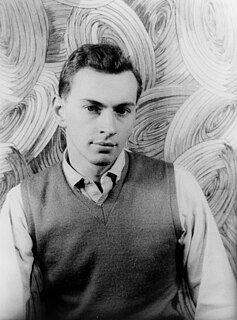 W
WEugene Luther Gore Vidal, better known as Gore Vidal, was an American writer and public intellectual known for his epigrammatic wit, erudition, and patrician manner. Vidal was bisexual, and in his novels and essays interrogated the social and cultural sexual norms he perceived as driving American life. Beyond literature, Vidal was heavily involved in politics. He twice sought office—unsuccessfully—as a Democratic Party candidate, first in 1960 to the United States House of Representatives, and later in 1982 to the U.S. Senate.
 W
WJuan Luis Vives March was a Spanish (Valencian) scholar and Renaissance humanist who spent most of his adult life in the Southern Netherlands. His beliefs on the soul, insight into early medical practice, and perspective on emotions, memory and learning earned him the title of the "father" of modern psychology. Vives was the first to shed light on some key ideas that established how psychology is perceived today.
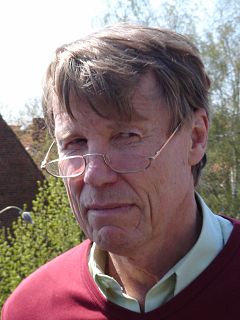 W
WHarald R. Wohlrapp is a German philosopher. His main focus is argumentation theory.